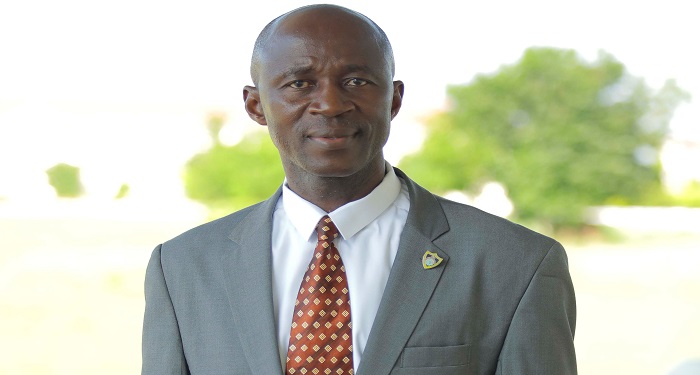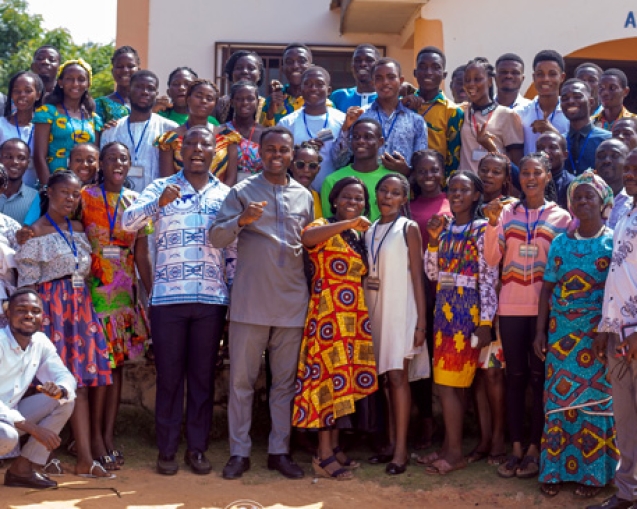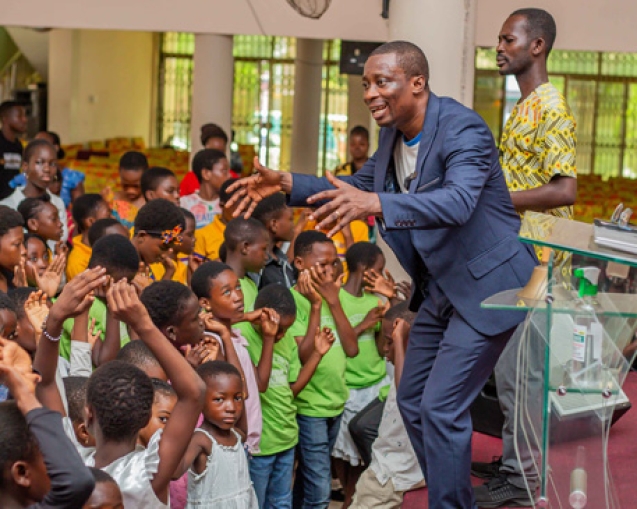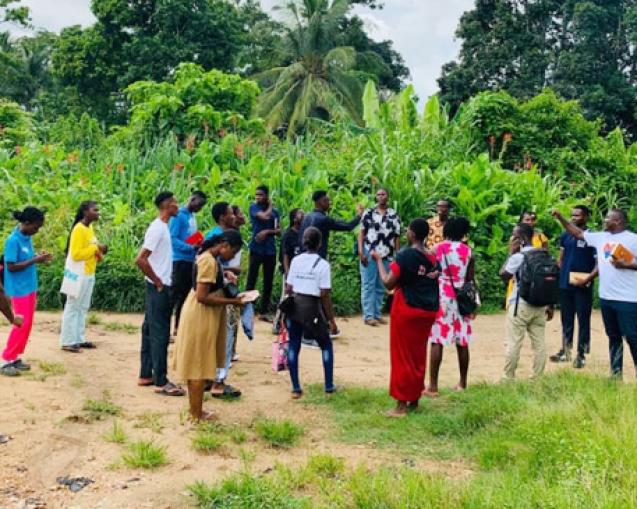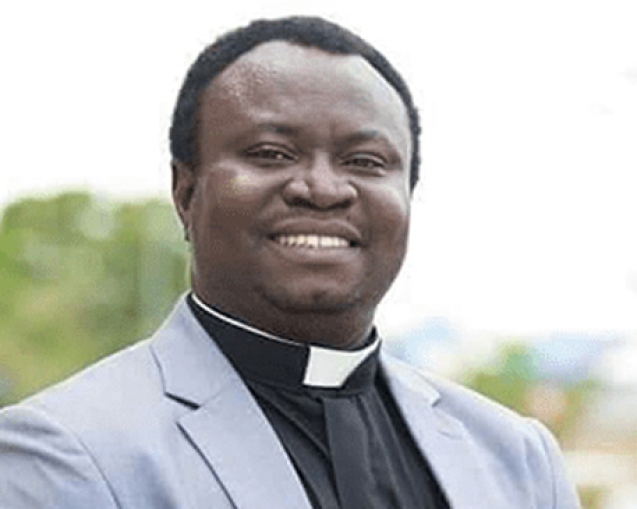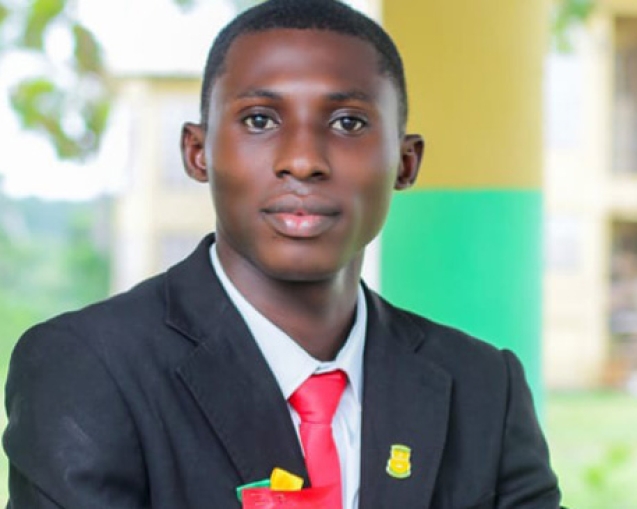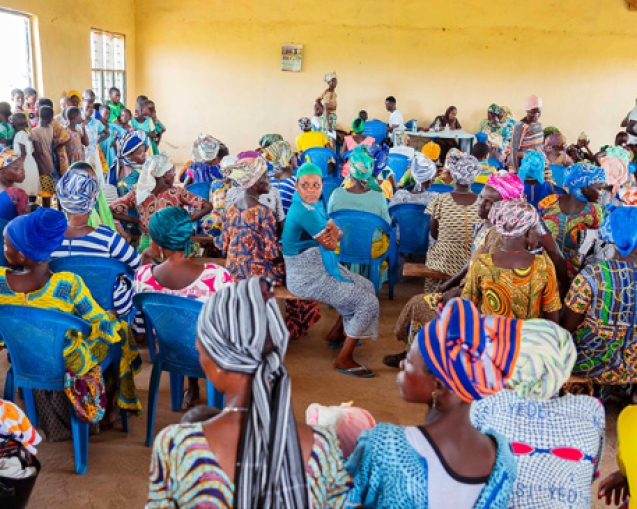The call for peace and tranquility during general elections is a responsibility of all peace-loving persons and civil society organizations because peace is invaluable while violence is very expensive in its destruction. The negative effect of violence has no particular formula and it is not also a respecter of persons – anyone can be a victim in violent situations. This is why a peaceful society/environment is a very significant factor in every democracy and it must be jealously guarded by all parties involved in any electoral process.
Praying for and promoting peace in the nation is the divine responsibility of every peace-loving person as indicated in Jeremiah 29:7, “Also, seek the peace and prosperity of the city to which I have carried you into exile. Pray to the Lord for it, because if it prospers, you too will prosper” (NIV). As our nation heads for general elections on December 7, 2020, the church as a prophetic voice in society considers herself as an agent of peace with a responsibility to preach, exhibit, and model peace and harmony in the Ghanaian society. This is because peace in the nation is peace for our very existence and development as people.
As a nation, there is every cause to thank God for His sustenance of the Ghanaian democratic system since the adoption of the 1992 constitution that ushered us into the fourth Republic. We have had six general elections with the forthcoming polls on December 7, 2020 being the seventh in the series. However, all the previous elections conducted in Ghana were not without some kind of troubles or violence. There are still hotspots and flashpoints in the nation which have always been characterized by violence-related elections. Over the years, reports by the media have also indicated some acts of vigilantism and extreme political activism that infuriate passion during general elections.
It is against this backdrop that peace campaigns have become a critical factor in the preparations towards general elections in Ghana. The ultimate goal is to ensure “peaceful and orderly” balloting and that is why The Church of Pentecost (CoP) and some other agencies are spearheading a nationwide peace campaign ahead of the December 7, 2020 elections. The CoP, for example, with her membership close to three million in Ghana, seeks to add her voice to the ongoing education among the Ghanaian populace by governmental and civil society organizations on the need for another peaceful elections this year.
Activities towards the elections call for other peace-loving institutions to emulate the move by the CoP and to join the peace campaign trail to drive the message of peace across all spheres of the Ghanaian society. The CoP, in particular, successfully embarked on a similar peace campaign during the 2016 general elections as its social contribution towards the peace-building process of the Ghanaian democracy. This year’s peace campaign of the Church was launched on Sunday, 27th September, 2020 and it was attended by the Chairperson of the Electoral Commission of Ghana, Mrs. Jean Mensa, the Chairpersons of the political parties contesting for the elections, security services, religious leaders, and civil society organizations. The message of all the stakeholders was to send a very strong signal to the general public that every Ghanaian citizen has the responsibility towards peaceful balloting on the December 7, 2020 polls.
The Nature of the Situation
The situation of Ghana’s political system, at times, causes unnecessary tension during general elections in the country. Although the Ghanaian democratic system may be considered a “multi-party” system, partisan politics in the country appears to be operating on a dualistic political system that tends to divide the nation behind two major parties – the New Patriotic Party (NPP) and the National Democratic Congress (NDC). This development appears to affect the social cohesion of the people of Ghana with the tendency to create tensions during general elections in the country.
The cause of the tensions may be attributed to the approach initiated by the political parties and their followers to deal with what they perceive to be “inappropriate conduct or actions” by either their political opponents or other agencies involved in the electoral process. Sadly, in some instances, their approaches rather turn out to be problematic and that affirms Albert Einstein’s assertion that “Peace cannot be kept by force; it can only be achieved by understanding.” The import of this statement is that peace must be sought before it is attained; it is neither commanded nor enforced without recourse to a due process. When peace is enforced without a thorough understanding of stakeholders, the seed is inadvertently sown for societal crises or rancour. How then do we act as agents of peace in all aspects of our activities in the run-up to this year’s general elections? Obviously, each of the following groups of people has a critical role to play in ensuring the attainment of peaceful elections this year:
The Electoral Commission (EC)
The unbiased role of the EC as the main umpire in the electoral process is cardinal in safeguarding the peace and stability of the nation. Prudence in ensuring free and fair elections, as the tenets of its constitutional mandate, has a far-reaching, positive impact on the entire electoral process to avoid violence-related elections. Free and fair elections help to avoid rigging and malpractices that may result in a dispute during or after the elections. For us to achieve our aim of free and fair elections or avoid post-election disputes that could trigger a conflict situation, the EC, as the principal actor and arbiter of the general elections must be seen to be markedly fair.
If the EC excels in its constitutional mandate with transparency as expected, the kind of unnecessary apprehensions and contentions that had characterized our previous elections may become minimal in this year’s balloting. Ghanaians look forward to seeing remarkable progress in our electoral process this year as against those of previous years because we have come far as a nation. The clock must not be rewound backwards – and the EC’s positive role is crucial if we are to progress with our expectation of free and fair elections.
During the launch of the second edition of the agent of Peace Campaign organized by the CoP at its auditorium at Burma Camp, Accra, the EC Chair, Mrs. Jean Mensa assured that Ghanaians, thus: “I must work and undertake all my duties to ensure that it is the will of the people, which is the will of God, that stands. As an Agent of Peace, I should be truthful and not seek to alter the will of God. The Onus is on me to abide by this principle. God being my guide and helper I am confident that I will not let Him and the people of Ghana down; in Jesus name” (Pentecost News, 2020). This statement is very reassuring and Ghanaians are looking forward for the practicability of it in the way the EC will conduct the elections this year.
The Political Parties
Our political parties have the responsibility to maintain the peace and harmony of the Ghanaian society. To achieve this, we urge them to desist from any attitude, action and inaction that may incite the general public to violence during the electioneering campaigns. Whether one likes it or not, our politicians and their political parties might have invested heavily in their preparations towards these elections. The energy and resources they invest in elections may sometimes make a politician develop an audacious passion that he or she must be the only winner of the elections without considering anything otherwise. Their investments notwithstanding, they should also learn about how they must conduct themselves in the event of winning or losing the elections. The principle of “learning to lose” election applies in this context because the elections being entered by two or more contestants may not tie.
Generally, when two or more politicians enter for the polls, one is finally declared a winner of the total votes cast and that calls for political candidates to adopt the principle of “learning to lose,” or “losing honourably”, long before they cast their vote. It is when politicians are adequately prepared to handle losses in an election that they will not hesitate to accept the outcome of the electoral result. The readiness to accept losses, if they happen, must always be at the back of the mind of every mature politician as long as we take into consideration that it is not likely for the election to tie. It is also not likely that the party which is audaciously passionate about winning the elections must, by all means, be declared a winner.
Politicians should understand that the energy invested in preparing their acceptance speech when they win an election, the same energy must also be used to concede defeat because there will definitely be a loser after the polls. It could be Mr “A” or Mr “B”, but the bottom line is that only one person or political party will be declared a winner of the polls in a constituency while the rest will join the losing trail. On the flip side, winners must also be gracious and magnanimous in their celebrations, taking the emotions of losers into consideration; we must do unto others just as we may expect them to do unto us because with the measure you use, it will be measured back to you (see Matt. 7:2). For instance, if you are the loser, how would you have expected your opponent to treat you? This is a food-for-thought for all of us!
The verdict of the ballot is more powerful than the emotional sentiments attached to the energy and resources invested into the electoral process. Therefore, the verdict of the ballot in the light of free and fair elections must have a bearing on the desire of all stakeholders because it is the will of the people; the electorate. It is the verdict of the ballot that determines the result of the poll; not the wishes and the passion of an individual about the polls. The verdict of the ballot may not compliment with the effort of the huge resources invested into the electioneering process. Whenever the verdict is pronounced after the polls, the next expectation of all peace-loving people of losing political actors, or better still, politicians, is to concede defeat (something that all contestants of the polls should have prepared along with their victory speeches long before the elections), congratulate their political opponents for their success in a battle well-fought, and move on with their lives.
Naturally, any person contesting an election must bear in mind that there are “two six o’clocks” in a day – one in the morning and another in the evening. If one misses the morning six o’clock, one is likely to catch up in the evening one. Politics is a dynamic and progressive process; the loss today can be the win tomorrow. With time, the destiny and the political ambition of every person will be determined by the ballot, so there is no need to resort to violence or utter misconduct when one loses an election. For example, there are politicians in this world who have lost elections on several occasions, but with patience and re-strategizing with a progressive pursuit of peace and development, have won in their subsequent attempts. The antidote to failure, is patience and repeated and consistent attempts. If one is consistent, resolute, and progressive with one’s strategy as one continues to keep faith in God victory will surely be on their side.
The Media
The media owe us the responsibility to promote peace across the various political spectrum and social groups in the country. Religious organizations and civil society organizations may always talk about the need for peace and national cohesion, but the input of the media is crucial for the sustenance of peace and harmony in the nation. Arguably, some of the keys to peace in the country are in the hands of the media and the Ghanaian media is lauded for using these keys creditably and responsibly over the years towards ensuring the peace and tranquility of the nation. They have demonstrated over the years that preserving the peace and harmony that have existed in Ghana for years is a collective responsibility of us all, regardless of our political affiliations. This is highly commendable and we are proud of them!
Nevertheless, much as the media in Ghana have a very good record, there is the need to be consistent and progressive with their achievement considering the fact that every general election presents itself with its peculiar challenges. Yesterday’s approach may not work properly today – depending on the dynamics on the ground in terms of the political situation in the country so the model of this year’s peace campaign must address the real issues pertaining to the context of the elections. It needs a pragmatic approach and innovations for packaging the ongoing peace campaign. The media, therefore, have a huge responsibility to sincerely be in the forefront of the various peace campaigns launched across the country ahead of the elections. Their involvement in the peace campaigns as agents of peace in Ghana can be a good starting point for the discourse about the role of the media towards the peace-building process in the country. The peace campaign agents need their proactiveness, innovations, and robust approaches to addressing peculiar challenges for this year’s elections.
As has been stated earlier, the whole process of electioneering campaigns is very expensive in terms of investments made and the resources invested. However, much as we exhort our politicians to conduct themselves in a peaceful manner during the elections, the media must also help us to achieve this objective. The media should acknowledge the fact that losing an election is a very disheartening and soul-wrenching experience which, therefore, calls for circumspection in reporting election-related news, particularly during and after the elections. Any distortion of information about a particular political candidate or party may evoke tension.
The onus, therefore, lies on the media to be cautious in exercising their editorial rights during elections. The way the media conduct political interviews, documentaries, or debates must be shorn of all contents that could instigate their readers and audience towards violence. The overriding point here is that the media is a crucial actor in the country’s democratic dispensation, just as elections are vital for every democracy to thrive. Persons on any media platform making wild and unsubstantiated claims or allegations must be asked to prove their allegations beyond reasonable doubt to avoid creating chaos in the nation. It is, thus, a divine call for the media as agents of peace to exercise restraint in reporting anything that is tantamount to causing mayhem in the society.
The Electorate
In the democratic system, leaders do not impose themselves on their people; they are elected and those who have the constitutional powers to elect leaders through the ballot are the electorate. The electorate in this sense are all the citizens whose names are properly captured in the voters’ register compiled by the EC and have satisfied “all righteousness” to vote in any election in Ghana as per the electoral regulations of the Commission. They are eligible voters because their voting rights have not been disputed by any person while their conduct during the electoral process resonates with the laws of the land. They are law-abiding in their actions towards the elections. The conduct of the electorate is summarized in 1 Peter 2:17, “Respect everyone, and love the family of believers. Fear God, and respect the king” (NLT). Equal respect for all, including the rules set by the state for its citizen to be law-abiding, is the recipe for good conduct in all activities relating to the general elections.
With this insight, it is permissible to say that the electorates are the most significant segment of the electoral process. Without them, no political candidate will be declared a winner during general elections in Ghana. Thus, the responsibility of the electorate in ensuring and maintaining peaceful elections is as crucial as that of the political parties, EC, and civil society organizations. While it is the civic right of every Ghanaian citizen to exercise their franchise through the ballot, it is equally their civic responsibility to be agents of peace – that is, to safeguard the peace and harmony being enjoyed in the nation.
There is no dichotomy between the rights that quality someone to exercise their franchise through the ballot and the responsibility on the individual to promote peace in the country – both are legitimate “Rs” that must be pursued by the electorate. If we cannot predict the magnitude of violence, then we must all understand that the best alternative for every Ghanaian in this our peaceful state is to be an ambassador for peace. We must preach peace and talk peace before, during, and after this year’s elections. This means the electorate should go to the poll with two responsibilities – the first reason is to vote to elect their preferred leaders and the second reason is to ensure that the peaceful atmosphere in the nation is protected against disturbance. How can they achieve these two objectives?
There are good procedures put in place by the EC for the electorate in Ghana to follow and every Ghanaian must be well informed on those procedures. The electorate need to understand that at the end of the entire process, the good news expected by every patriotic citizen is the counting of the total ballot cast and the peaceful declaration of the winners of the elections by the EC, and not necessarily the number of violent situations recorded during the process. The electoral process is not the platform for a person to unleash terror against their fellow compatriots; it is rather the opportunity given by law for citizens to choose the leader(s) after their own heart and desire.
It must be reiterated that no matter how disgruntled one may be, violence is not an option of every democratic system. Violence-related election is an unfortunate incident in the electoral process because it is not expected to occur in any civilized society. We should all bear in mind that violence-related election is not part of anybody’s budgetary allocations or planning activities towards the electoral process and it must be renounced in no uncertain terms during any election. It unleashes havoc on humanity and it is counter-productive with an unpredictable devastation on lives and properties. Thus, it must not be entertained in society, no matter how miffed any misconduct in the elections might have caused a particular individual.
Any person who subtly beats war drums must understand the fact that violence has never been a solution to any legitimate concern. There is nowhere in our constitution that recommends the use of violence to solve a legitimate concern. Violence rather aggravates the situation of people and makes life unbearable to the extent that sometimes even the initiators of any kind of violence tend to regret their actions because in violence situation any person can be a potential victim. There are legitimate procedures prescribed by the legal systems of Ghana to address election disputes and as we prepare for the polls, this must be at the back of our minds.
The NCCE, Civil Society Organizations, and Religious Institutions
Usually, during campaigns in this country, the focus has always been on the politicians and their political parties preparing for the polls, but less attention is paid in educating the general public about some implications in the electoral process. A thorough understanding by the electorate is vital and that can mostly be championed by the National Commission for Civic Education (NCCE) and its related organizations. Of all the various areas of educating the public about general elections, one of the things the NCCE ought to consider is to prepare their mind about the outcome of the ballot. The electorate needs to be adequately prepared ahead of time to be aware of the possibility of their candidates losing the elections.
We should not only talk about conducting a peaceful election when some people have not envisaged that losing an election is also part of the electoral process. Those who have not considered this fact may react with shock and frustration when their candidates fail to win the elections, but with an adequate education of the NCCE, and other organizations the electorate will be ready for whatever may be the outcome of the polls. Therefore, every person or social group needs an equal proportion of education about the nature of the electoral process and the need to accept in good faith the verdict of the ballot box. This is important because peace-building during elections is a collective responsibility by all well-meaning people in society. Another area the education process of the NCCE should focus on is capacity building of civil society and religious organizations in the country.
In the run-up to general elections, these organizations (from the grassroots to the top) would also have to learn much about the procedures for mediating conflict-related elections in the country. The bottom line, however, is that we want to have incident-free elections and every person or social group has a stake in the process which needs an adequate preparation for the process by all.
Consequences of Violence-Related Election
It must be thoroughly understood that violence-related election is not a respecter of a person or the cherished heritage of any society, nor does it have regard for their property acquired over the years. It ought to be reiterated that whenever violence strikes, it has no restriction in terms of its sphere of destruction and that is why every good citizen must sacrifice their resources to promote peace and harmony in society. When we consider the countries that have experienced violence-related elections, it can be noticed that the experience is one of the worse situations to happen to any civilized society.
Victor Frankl is reported to have said that, “Between stimulus and response, there is a space. In that space is our power to choose our response. In our response lies our growth and our freedom.” If we all have the “power to choose our response,” as is evident in this popular quote of Frankl, then let us all use the power at our disposal, including our political and religious impulse, to once again promote peace and harmony before, during, and after this year’s general elections as we have done in the past. Until the December 7, 2020 polls end, we should not rest on our oars – we must pray for the nation and promote peace in every corner we find ourselves in. The Psalmist says, “The LORD gives his people strength. The LORD blesses them with peace” (Ps. 29:11, NLT). This passage evinces peace as a blessing of God and we must all tap into it as a nation. Wherever there is peace and harmony, the people abound in God’s blessings.
Conclusion
There is no doubt that Ghana is a beacon of contemporary democracy in Africa in terms of the free and fair elections the nation has had during this Fourth Republic, freedom of expression, and, above all, the general governance system of the nation. It is important for every peace-loving person to understand that the peace and harmony enjoyed by Ghanaians need to be consciously guarded as we approach the December 7, 2020 polls. This presentation has demonstrated that the peacefulness and orderliness that is expected to be recorded in the elections would be consequential to our existence and safety as a people. Having seen the need for a peaceful election through this presentation, it is felicitous for me to opine that we must all exercise our religious virtues of peace and love as a people in the face of threats, acrimony, and wickedness. The time to put into practice the inherent peace espoused in our various religious organizations is now. When that happens, triumph will be celebrated in the light of God’s will for our nation.
Author: Vincent Anane Denteh (Rev.)
Email: vadentcop@gmail.com
Mobile: 0555874497
© 2020






